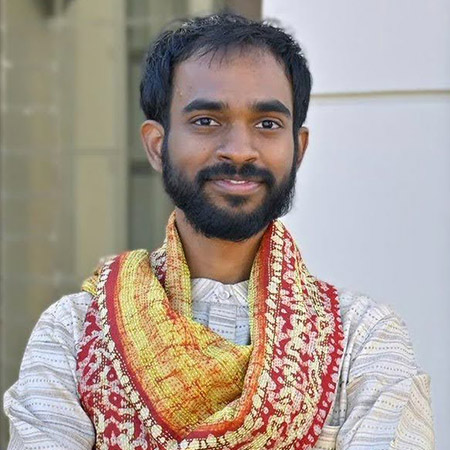Building Planetary-Scale Collaborative Intelligence
Sai Praneeth Karimireddy
Postdoctoral Scholar, UC Berkeley

Abstract: Today, access to high-quality data has become the key bottleneck to deploying machine learning. Often, the data that is most valuable is locked away in inaccessible silos due to unfavorable incentives and ethical or legal restrictions. This is starkly evident in health care, where such barriers have led to highly biased and underperforming tools. Using my collaborations with Doctors Without Borders and the Cancer Registry of Norway as case studies, I will describe how collaborative learning systems, such as federated learning, provide a natural solution; they can remove barriers to data sharing by respecting the privacy and interests of the data providers. Yet for these systems to truly succeed, three fundamental challenges must be confronted: These systems need to 1) be efficient and scale to massive networks, 2) manage the divergent goals of the participants, and 3) provide resilient training and trustworthy predictions. I will discuss how tools from optimization, statistics, and economics can be leveraged to address these challenges.
Bio: Sai Praneeth Karimireddy is a postdoctoral researcher at the University of California, Berkeley with Mike I. Jordan. Karimireddy obtained his undergraduate degree from the Indian Institute of Technology Delhi and his PhD at the Swiss Federal Institute of Technology Lausanne (EPFL) with Martin Jaggi. His research builds large-scale machine learning systems for equitable and collaborative intelligence and designs novel algorithms that can robustly and privately learn over distributed data (i.e., edge, federated, and decentralized learning). His work has seen widespread real-world adoption through close collaborations with public health organizations (e.g., Doctors Without Borders, the Red Cross, the Cancer Registry of Norway) and with industries such as Meta, Google, OpenAI, and Owkin.
Karimireddy’s research has been recognized by the EPFL Patrick Denantes Memorial Prize for the best computer science thesis, the Dimitris N. Chorafas Foundation Award for exceptional applied research, an EPFL thesis distinction award, a Swiss National Science Foundation fellowship, and best paper awards at the International Workshop on Federated Learning for User Privacy and Data Confidentiality at ICML 2021 and the International Workshop on Federated Learning: Recent Advances and New Challenges at NeurIPS 2022.